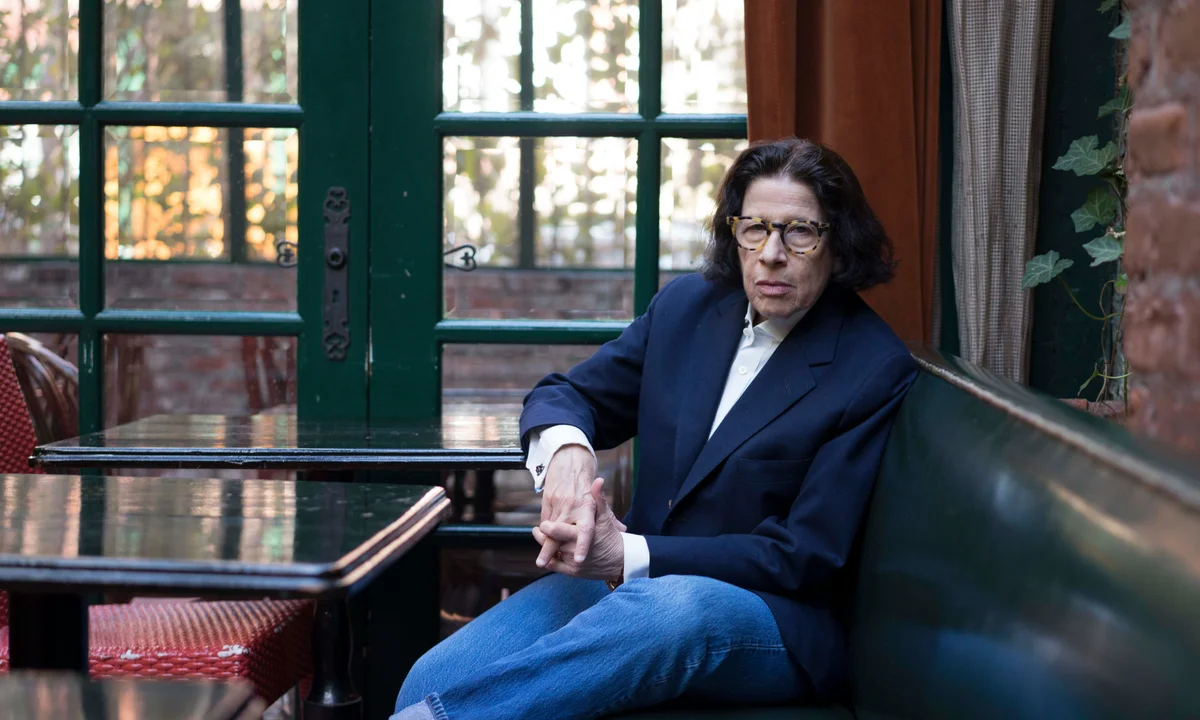On Jan. 23, ArtPower at UC San Diego warmly welcomed writer, comedian, and iconic New Yorker Fran Lebowitz to San Diego’s historic Balboa Theater. As she stepped on stage, Lebowitz opened with two artfully chosen sentences that would define the night to follow — one request and one confession. The request: that the 1,339 audience members sitting in the fully-occupied theater project their voices without a microphone during the Q&A session, and the confession: that she swapped seats to sit next to a “dead guy” on a flight to Rome, were both flabbergasting. Together, they embodied the sort of matter-of-fact, organic charm that Lebowitz is known for.
“An Evening with Fran Lebowitz” was just the pick-me-up that many Americans needed; she had the crowd rolling with laughter while also discussing important, timely issues. In the midst of much polarization and disillusionment following the 2024 election, Lebowitz simplifies the biggest questions plaguing the nation with a classic serving of her obscenely straightforward, quick-witted, and often strikingly accurate commentary. While she’s certainly an entertaining speaker, Lebowitz didn’t just come to play. With sprinkles of fan-favorite lines from her 2021 Netflix documentary “Pretend It’s a City” and an endearing bout about attending the Nobel Prize Awards with her best friend and writer Toni Morrison, Lebowitz’s New York stories instilled in younger audience members a contagious spirit of audacity, passion, and even love.
Regarding America, Lebowitz highlights the nonsensical, telenovela quality of our current state of affairs. There’s really no counterpart for many of the U.S.’s political issues in other countries, from our TV-personality president to the electoral college which over-inflates the rural vote. On Donald Trump, she quipped about the time the president offended collector institutions across New York City and civilized art enthusiasts everywhere by destroying the Bonwit Teller Building — a beautiful brick art deco landmark — to make space for his Trump Tower. As if being a country where the majority of people would rather elect a playground supervillain than a woman for president were not absurd enough, America — like Lebowitz pointed out — is also a country whose conservative, uber-wealthy are trying to time travel back to the 18th century, when women and minorities were wholly excluded from political conversations. Perhaps Trump erasing all traces of that 1920s building was a cruel omen for what was to come. An early stance against the free flourishing of artistic tradition, the fiasco is the first defeat in the president’s war against diversity, reflecting the societal trend of intolerance for variety in modern expression.
In a country where expression is undervalued, it has become more important than ever to advocate for the persistence of creativity in the public consciousness. As AI continues to proliferate, Lebowitz is more concerned about the decline of human intelligence than the growth of artificial intelligence, pointing out that an epidemic loss of individualized thinking alongside a pervasive lack of unique opinions supersedes the threat of AI content.
However, if there’s someone who sets an example for not caring what anybody else thinks, it’s Fran Lebowitz. If there’s someone who’s got an opinion, it’s also Fran Lebowitz. While Lebowitz doesn’t claim to voice opinions with the power of an inaugural address, she tells us that our voices have the potential to send shock waves of change. Lebowitz, who turned 74 last year, urges optimistic young people across the country to run for something — anything — and take charge to create the politics they want to see. There’s a lot to hate about America and New York, as evidenced by the stories and people Lebowitz has encountered while walking the city’s streets, but there’s also nowhere else like it. Despite a large portion of the country’s chaos stemming from the negativity in politics, it is still teeming with bright minds who find a sense of belonging in what America represents. In the hopeful presence of such potential, Lebowitz stresses that governments are only horrible because the people in them are.









Judy Brackett • Apr 6, 2025 at 11:56 am
I love Fran’s take on everything!!
Dennis Shaffner • Feb 20, 2025 at 5:36 am
Yes kiddos, run for your city council and see where the arts fit in your community culture.